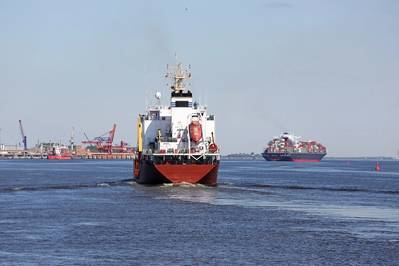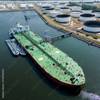ABS Head Wiernicki Sees Global Carbon Tax on Shipping on the Horizon
ABS chairman and CEO, Christopher J. Wiernicki, said he sees a universal, global carbon tax on shipping on the horizon, as alternative blue fuels made with carbon capture emerge as a growing part of the maritime industry's ongoing energy transition.
“We need to recognize that there is an intermediate step in the energy transition,” Wiernicki said during an appearance at the CERAWeek energy conference. “Last year the conversations were focused on going from oil to a green fuel economy. Today, we are seeing the emergence of the blue economy that addresses carbon management, carbon capture, carbon pricing and carbon credits and offsets, as an essential stepping-stone. The EU has recognized the importance of this intermediate economy with Fuel EU Maritime, and I believe you will see a universal carbon tax emerging as the IMO and the EU will synch together.”
Wiernicki said he sees effective regulation under one global regulatory framework as a key to success in the energy transition at sea.
“Commercial gravity alone will not get us to Net Zero by 2050. We will need ambitious measures, both carrot and stick. Fuel EU Maritime is one example, and a carbon tax is another. But a global industry needs a global approach, which is why IMO regulations are foundational for shipping. IMO has given us an investable roadmap with outcomes and signposts along the way. It has also introduced the shift from tank to wake to well to wake, which puts a completely new perspective on fuel choices when looking at lifecycle emissions performance. Even though the IMO is being challenged by regional lawmakers, everything really starts and stops with the IMO.”
Wiernicki noted that shipping’s transition is only just beginning and that there is still much to be decided in the coming decade, such as fuel of choice for maritime vessels as cleaner-burning propulsion technologies continue to evolve.
“The next 10 years will determine what is desirable vs what is doable,” Wiernicki said. “It is way too early to declare fuel winners. The fuel technology readiness timeline will be incremental and go through a short game, a mid-game and a long game. Pace and speed will be driven by the boundary conditions of safety, fuel availability and scalability of infrastructure and, more specifically, by the cost of the electrolyzer and the cost of the carbon capture. We know these are the technologies with transformational potential, along with electrification and battery energy storage, green hydrogen and nuclear energy.”















